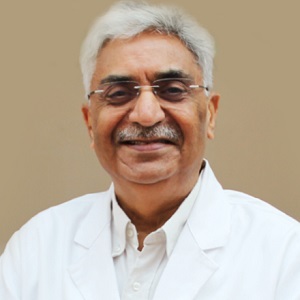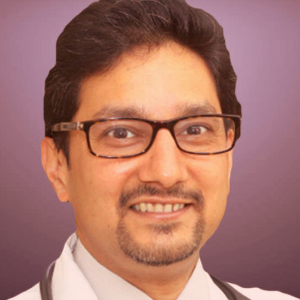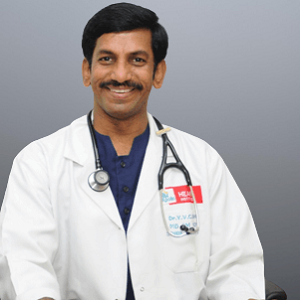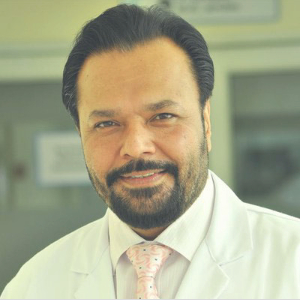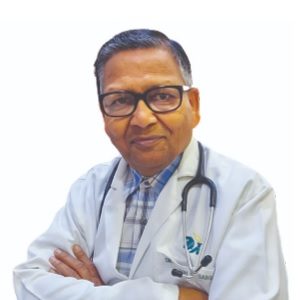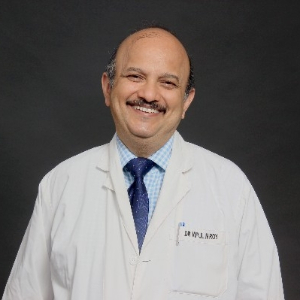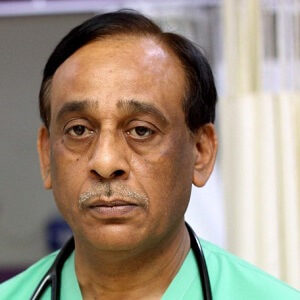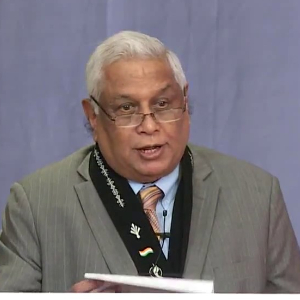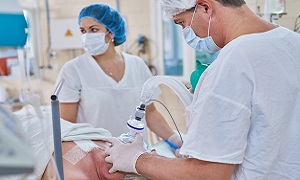Best TAVI / TAVR procedure doctors in India
- Interventional Cardiologist, Electrophysiologist; Gurugram, India
- Over 37 years’ experience
- BLK Super Specialty Hospital, New Delhi
Profile Highlights:
- Dr. T. S. Kler, a Padma Bhushan awardee, stands as a luminary in the field of cardiology with over 37 years of exemplary service.
- As the Chairman and Head of the Department at BLK-Max Heart & Vascular Institute, and the Chairman of Pan Max Electrophysiology, he has been at the forefront of cardiac care, pioneering numerous advanced procedures.
- Dr. Kler’s extensive experience includes performing more than 35,000 coronary, renal, carotid, and peripheral angioplasties.
- Cardiologist, Apollo Hospitals Greams Road Chennai, India
- Over 35 years’ experience
- Apollo Hospitals Greams Road
Profile Highlights:
- Dr. Robert Mao is a distinguished Cardiologist with over 35 years of experience in the field, currently affiliated with Apollo Hospitals Greams Road in Chennai.
- His extensive career has earned him a reputation for excellence in cardiology, supported by an impressive array of qualifications and a strong track record of patient recommendations.
- Dr. Robert Mao’s extensive experience, diverse qualifications, and high patient satisfaction make him a leading figure in cardiology, dedicated to providing top-tier cardiovascular care.
- Top Interventional Cardiologist | Fortis Escorts, New Delhi, India
- 20+ Years Experience
- Fortis Escorts Heart Institute New Delhi
Profile Highlights:
- Dr. Vishal Rastogi is a distinguished Interventional Cardiologist and the Director of the Interventional Cardiology & Advanced Heart Failure Programme at Fortis Okhla.
- With over 20 years of experience, Dr. Rastogi has established himself as a leading expert in the field.
- Academically, Dr. Rastogi holds an MBBS, MD, and DM, reflecting his deep commitment to medical excellence.
- Interventional Cardiologist, Chennai, India
- Over 25 years’ experience
- Apollo Hospitals Greams Road
Profile Highlights:
- Dr. Y Vijayachandra Reddy is an interventional cardiologist with 25+ years of experience.
- Dr. Reddy’s work experience includes more than 7000 PCIs, 30000 invasive procedures, 550 PCIs in cardiogenic shock, 700 Cardiac devices, 400 PTMCs, and several EVAR and TEVAR procedures.
- His expertise lies in pacemaker implantations, pediatric interventions, ICDs, CRTs, endovascular repairs, and more.
- Interventional Cardiologist, Gurugram, India
- Over 25 years’ experience
- Fortis Memorial Research Institute
Profile Highlights:
- Dr. Manjinder Sandhu is a leading interventional cardiologist based in Gurugram who holds an extensive experience of over 25 years in the field.
- His primary interest lies in Complex Coronary Interventions, Trans-radial Interventions, and Balloon Valvuloplasty, and has performed a large number of such procedures in his career mainly while serving in the Army Medical Corps.
- Dr. Sandhu has been teaching and training postgraduate students in Cardiology and Medicine and has been a guide to several successful cardiologists in India.
- Top Interventional Cardiologist | Apollo Hospital, New Delhi, India
- 53+ Years Experience
- Indraprastha Apollo Hospital, New Delhi
Profile Highlights:
- Dr. Mahesh Chandra Garg is an Interventional cardiologist working at Indraprastha Apollo Hospital in New Delhi with experience of over five decades in the field. He has an interest in Cardiovascular Intervention and Imaging.
- Dr. Garg has specialized in Enhanced External Counterpulsation, Chest Pain Therapies, Diabetic Cardiovascular complexities, and Coronary Artery Bypass Graft Surgery.
- He achieved excellence in invasive cardiology as a result of his participation in specialized training programs and conferences. Dr. Garg provides valuable care for his patients while also encouraging them to adopt a healthy lifestyle.
- He delivered presentations at numerous conferences and published papers in well-known national and international medical journals.
- Top Interventional Cardiologist | Apollo Hospital, New Delhi, India
- 30+ Years Experience
- Indraprastha Apollo Hospital, New Delhi
Profile Highlights:
- Dr. Vipul Narain Roy is one of the best practicing Cardiologists in India, currently associated with the Indraprastha Apollo Hospital in New Delhi.
- After completing his MD, Dr. Roy travelled to UK where he spent eight years in Liverpool at Regional Adult Cardiothoracic Center.
- In 1994, he came back to India and joined Interventional Cardiology at Escorts Heart Institute in New Delhi as a consultant.
- Top Interventional Cardiologist | Apollo Hospital, New Delhi, India
- 36+ Years Experience
- Indraprastha Apollo Hospital, New Delhi
Profile Highlights:
- Dr. K K Saxena is one of the top cardiologists in India, having nearly 36 years of experience in this field.
- He is a senior consultant for interventional cardiology at Indraprastha Apollo Hospital in New Delhi.
- Dr. Saxena diagnoses and treats cardiovascular problems in kids and adults. He is specialized in balloon dilation of the mitral and pulmonary valves, the renal and peripheral arteries, and aortic coarctation.
- Dr. Saxena and his team performed several cardiac catheterizations and pacemaker implantations.
- Prior to joining Apollo hospital, Dr. K K Saxena worked at many national and international hospitals.
- He also completed research in interventional cardiology at the Royal Adelaide Hospital, Australia.
- Interventional Cardiologist, Mumbai, India
- Over 40 years’ experience
- Lilavati Hospital & Research Centre
Profile Highlights:
- Dr. Samuel Mathew is famously known as the Father of Angioplasty in India for being the first to introduce the procedure in the country.
- He is a renowned interventional cardiologist and brought in several innovative techniques of angioplasty with coronary Stenting, Carotid Stenting, Percutaneous Bypass, Rotablator Atherectomy, and other such procedures.
- Dr. Mathew holds over 4 decades of experience in interventional cardiology and has performed more than 10,000 angioplasties till date. He also holds the credit for more than 3000 Intra Coronary Stenting and 800 Rotablation cases.
- Interventional Cardiologist, Chennai, India
- Over 22 years’ experience
- Apollo Hospitals Greams Road
Profile Highlights:
- Dr. Rakesh P Gopal is an Interventional Cardiologist who has done outstanding work in Interventions for Valvular Heart Disease, Mitral, Aortic, Pulmonary Balloon Valvotomy, and Initiation for Trans Aortic Valve replacement.
- He is the editor of the book Cardiovascular Interventional Trials Update, published by Mathew Foundation and Asia Pacific Interventional Cardiology India Educational Trust.
- Dr. Gopal is a firm believer in the No Re-use idea of disposable materials in interventional procedures.
Best Hospitals for TAVI/TAVR in India
TAVR Procedure
Transcatheter aortic valve implantation/replacement (TAVI/ TAVR) is one of the magnificent developments in medical science in recent times. With TAVR procedure, patients having aortic stenosis are able to get the valve replaced without having to undergo a open-heart surgery as was the case before.
In TAVR, a Transcatheter Aortic Valve is inserted using a catheter into the heart through a large blood vessel in your groin or through a small incision in your chest.
The valve is normally made of natural tissue from the heart of either a cow or a pig. The natural tissue is re-engineered and attached to a flexible expanding mesh frame. In order to implant it into the heart, the valve is squeezed around or inside a catheter. The catheter is then inserted and guided to the aortic valve opening in your heart where it is implanted over your existing valve. Once the new valve is implanted, the catheter is removed. The new valve starts working right away.
(Explained by Dr. Praveen Chandra, Medanta-the Medicity, India)
What conditions is TAVR used for?
- TAVR is used for the treatment of Aortic Stenosis. In aortic stenosis, the aortic valve opening is narrowed. As a result, the valve will not open fully which makes the heart work harder & reduces blood flow to the body.
- TAVR may also be an option if the patient has a non-functioning biological valve that was previously inserted to replace the aortic valve.
What tests are done to determine if I am right candidate for TAVR?
To determine your best eligibility for TAVR procedure, you may be required to undergo the following tests:
- Electrocardiogram
- Echocardiogram
- CT Scan and
- Angiogram
TAVR Procedure explained
Before the procedure
- Do not eat at least 6 hours before the procedure.
- Stop taking diabetes & blood thinning medications at least 3 days before the procedure.
- Do not drink any clear fluids like water and tea without milk 2 hours before the procedure.
During the procedure
The patient is given general anesthesia. A balloon catheter is inserted into an artery through groin or collar bone, which is advanced into the heart and placed within the opening of the aortic valve. The balloon is gently inflated so that the replacement valve is pressed in the place of the native aortic valve or a new aortic valve is implanted using metal mesh tube. When the valve is securely placed, the catheter is withdrawn from the blood vessel.
After the procedure

- The patient is monitored closely, in the hospital for any possible after effects of the surgery.
- TAVR patients are usually discharged from the hospital within three to five days, after the procedure.
- The patient is prescribed blood-thinning medications to prevent blood clots after the procedure & medications to prevent certain infections
FAQs
What are the symptoms of Aortic Stenosis (for which TAVR is done)
Aortic Stenosis puts extra strain on your heart and can result in breathlessness, swollen ankles, chest pain, dizziness and sometimes, blackouts.

